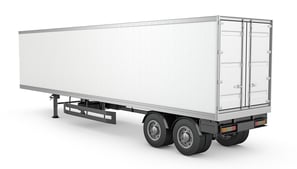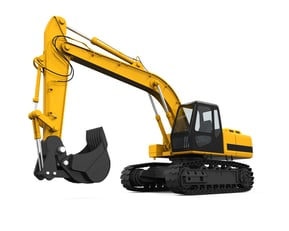When most people hear the phrase “GPS tracking,” the first thing that comes to mind is tracking for motor vehicles. However, GPS tracking can do much more than just report the position of a vehicle—many companies now use GPS tracking to manage stationary assets in addition to their fleet of vehicles.
Combined with specialized asset management software, GPS tracking devices can deliver all kinds of data about your high-value assets.
What kind of assets should you be tracking with GPS and asset management software?
Here are a few suggestions for assets you might want to track, depending on your industry:
#1: Generators
 Whether you lease out generators to other businesses or have them deployed to your own operations, it’s a good idea to use GPS tracking and asset management software on these high-value assets.
Whether you lease out generators to other businesses or have them deployed to your own operations, it’s a good idea to use GPS tracking and asset management software on these high-value assets.
With an integrated GPS unit, you can monitor data such as when generators are activated, how long they’re running, their fuel consumption, and other information that could be useful for optimizing their use.
Additionally, the GPS tracking could prove to be a useful antitheft feature, helping aid recovery of a stolen generator. This is particularly useful for equipment lessors that lend out generators to other businesses and don’t want their products leaving a certain, predefined region.
#2: Flatbeds, Trailers, and Other Cargo-Carrying Equipment
 A lot of the time when you hear about GPS tracking, the GPS tracking device being mentioned is located in the vehicle. However, another important item that fleet managers in the shipping industry might want to slap a GPS tracker onto is their fleet’s flatbed, trailers, and other cargo-carrying assets.
A lot of the time when you hear about GPS tracking, the GPS tracking device being mentioned is located in the vehicle. However, another important item that fleet managers in the shipping industry might want to slap a GPS tracker onto is their fleet’s flatbed, trailers, and other cargo-carrying assets.
According to statistics cited by RSI Insurance Brokers, “61 percent of cargo theft losses occurred at truck stops and official rest stops.” In many of these cases, the thieves stole the truck along with the trailer. But, some savvy thieves that know about GPS tracking may try to disable the tracking device in the truck or bring a separate truck of their own to steal the trailer/flatbed.
With a separate GPS tag for the trailer or flatbed, you can thwart clever thieves who believe they may have circumvented your cargo’s GPS security.
#3: Construction Equipment
 Contractors operating on a tight budget need every advantage they can get for making their construction projects as fast and efficient as possible. The bidding for a project can be absolutely brutal, with very little margin for profit left at the end—and that’s before any delays, cost overruns, and penalties that might crop up.
Contractors operating on a tight budget need every advantage they can get for making their construction projects as fast and efficient as possible. The bidding for a project can be absolutely brutal, with very little margin for profit left at the end—and that’s before any delays, cost overruns, and penalties that might crop up.
GPS asset tracking and management software can help busy contractors get more from their construction equipment by tracking vital performance and use statistics such as total idle time, when equipment is first activated/deactivated, and fuel consumption.
Armed with this data, contractors can better estimate and plan for their costs, spot inconsistencies in construction work, and make optimizations to how they deploy heavy construction equipment.
This can help to prevent delays and inefficiencies that add to costs and cut into the bottom line on big construction projects requiring heavy-duty construction equipment. Asset tracking software with GPS tracking can also help prevent theft and misuse of large construction equipment by generating alerts when machinery is activated or moved offsite.
These are just three examples of non-vehicle assets that could be tracked with GPS devices for different industries.
Find out how you could use GPS tracking to protect your assets and increase efficiency for your organization today!
Like what you're reading? Subscribe to our blog.
Get our latest posts straight to your inbox.
Subscribe to Our Blog





